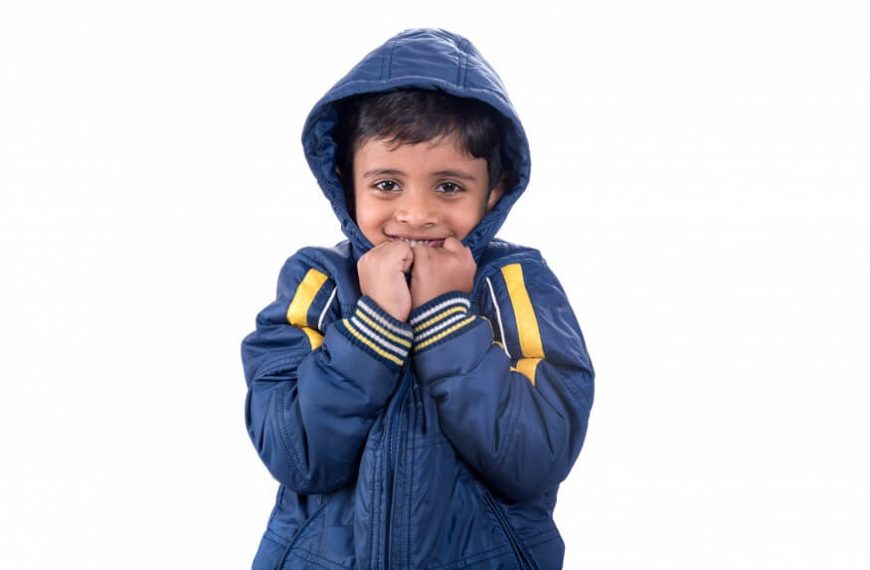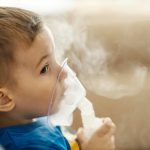Winter can be a lot of fun with hot chocolate and snuggling under blankets while watching a good show or reading an engrossing book. There are places in India where the temperatures are freezing and it is necessary to protect children from harsh weather that can make them ill. Keeping kids at home all the time is not an option and in any case that doesn’t stop infections and allergies from happening. The best you can do is keep your kids warm and safe in other ways and follow a few winter safety tips. These are things that often get neglected so we have for you a winter safety checklist.
Staying Warm with Winter Clothing
Though this may sound pretty basic, it is extremely important to keep warm in winter. In the case of toddlers especially, you have to be extra careful as they feel the cold more. It is best to dress them in multiple layers of clothing along with accessories like thick socks, boots, headgear and gloves. You could also try to reduce their exposure to the cold as they are more vulnerable.The general rule is to dress infants in one more layer than what the parents are wearing.
Prevention of Cold or Flu
You can keep your kids safe from colds and flu by ensuring that they wash their hands for at least 20 seconds regularly with soap and water. Keep their immunisation records updated and make sure that all their flu vaccinations are completed on time. Teach them basic hygiene like covering their mouths and nose if they cough or sneeze with either a handkerchief or by coughing or sneezing into their elbows.
Keeping your Children Hydrated
In winters, it is very common for both adults and children not to feel thirsty and invariably they end up drinking less water than they should. It is very important to keep children hydrated as it prevents problems like headaches and constipation. Drinking warm milk with turmeric and other fluids like juices also help in building immunity during winter.
Use Protective Sunscreen
It is a common misconception that sunscreen has to be used only for protection during the hot summer months. Sunscreen is absolutely necessary in all weather, even when it is cold or cloudy. Protective sunscreen has to be used for babies and toddlers so that their skin is protected from the harmful rays of the sun and is one of the important outdoor winter safety tips.
Our skin faces a whole lot of extra challenges during the winters. Chapped cheeks and lips as well as dry skin are very common and may sometimes even bleed. It is a good idea to keep things like lip balm, moisturisers and vaseline ready for such situations.
Nutritious Food
Healthy nutritious food is all the more important for kids during winter as their immunity needs to be boosted. You can create some winter traditions like drinking hot chocolate or jacket potatoes for the kids to look forward to. Warm, nourishing food like broths and soups are tasty and keep your child safe from colds and other ailments.
Regular Exercise
Regular exercise is a great way to keep your child safe from catching colds and other related ailments. Exercising not only strengthens the body but also keeps your child fit and equipped to fight diseases associated with the cold. Some of the exercises that can be done in cold weather are jogging, cycling, running and rope skipping.
Encourage Kids to Play Indoors
Though it is not possible to keep children indoors all the time during winter, you can encourage them to take up some indoor activities so that their exposure to the cold is limited and there are less chances of them catching a cold or an associated ailment.
Handling Frostbite
To prevent frostbite, dress your child so that they are fully covered. Clothing like gloves, boots, mufflers and headcovers are necessary. If your child gets wet, take them indoors, change them into dry and warm clothes and give them something warm to drink like soup or hot chocolate.
In case your kid gets frostbite, you first need to comfort your child and calm them down. Move them to a warm area immediately and do not allow them to walk if they have frostbite on their feet. Either call or rush to a doctor or healthcare professional as soon as possible.
Handling Nosebleeds
Make your kid sit up and ask them to lean forward so that they don’t swallow blood. Apply pressure on the nose and apply ice for 15 to 20 minutes. After that, if required, gently pack their nose with a cotton ball.
Use Blankets
For children who are still using car seats in vehicles, bundling them up in thick, bulky clothes may not be a good idea inside the vehicle. You could instead, keep a blanket in the car which they can wrap around themselves after they have been buckled in.
Electric blankets are also good for preheating the bed so that you are warm and toasty through the night.
Use a Body Carrier for Babies
This helps you to hold your baby close to your body and provide them with extra warmth. You could also swaddle your baby or use a sleep sack so that their hands and feet are covered to trap body heat. For older children, you could use sleeping bags as they are good insulators of heat.
Winter can cause a number of winter diseases, more so in the case of children as they are more vulnerable but it can be prevented or at least reduced with the help of certain winter safety tips if followed judiciously. Proper warm clothing, nutritious food and exercise and sufficient hydration are some of the ways to keep your child protected during the winter months. For more information and tips on the winter safety checklist and how to keep your child healthy during winter as well as precautions that you can take to protect your child, you can check out the EuroKids website and keep yourself updated.













